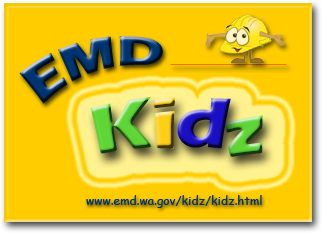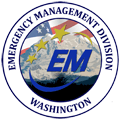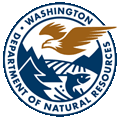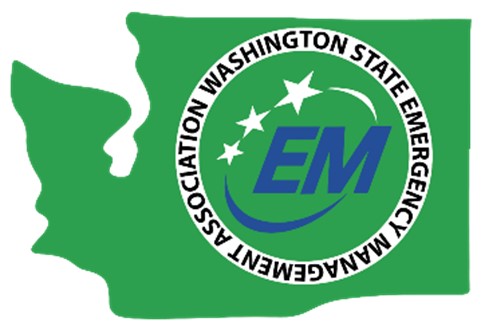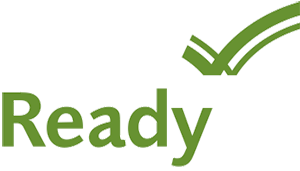- ▾ Other ShakeOuts ▾
- Alaska
- American Samoa
- Arizona
- British Columbia
- California
- Central U.S. (AL AR IA IL IN KS KY LA MO MS NE OH OK TN)
- CNMI
- Colorado
- Guam
- Hawaii
- Idaho
- Japan
- Montana
- Nevada
- New Mexico
- New Zealand
- NorthEast U.S. (CT MA ME NH NJ NY PA RI VT)
- Oregon
- Puerto Rico
- Quebec & Eastern Ontario
- SouthEast U.S. (DC DE FL GA MD NC SC VA WV)
- Texas
- Upper MidWest U.S. (MI MN ND SD WI)
- U.S. Virgin Islands
- Utah
- Washington State
- Wyoming
- Yukon
- Other Countries

ShakeOut Educational Resources
Simple Activities and Games
These activities are designed to increase student knowledge about earthquake science and preparedness. They simple activities can be done anytime in the weeks leading up to the ShakeOut drill. Each activity should last approximately half an hour and can be used in classrooms, museums, and other educational settings. They are not sequence-bound, but when used together they provide an overview of earthquake information for children and students of various ages.
Each activity has a guide, followed by matching activity sheets. Directions on how to conduct each activity and relevant background content for each topic can be found in the guide pages.
| Fault Block Models | Guide (PDF) | Materials (748 KB PDF) |
| Finding Plates by Plotting Quakes | Guide (PDF) | Materials (1.2 MB PDF) |
| Emergency Kit Concentration (game) | Guide (PDF) | Materials (324 KB PDF) |
| Pass the Flashlight! (game) | Guide (132 KB PDF) | Materials (36 KB PDF) |
| Safe Areas | Guide (PDF) | Materials (2.3 MB PDF) |
| My ShakeOut Story | Guide (PDF) | Materials (PDF) |
Schools, museums, libraries, and families can encourage their students, visitors, and children to visit the Washington Emergency Management Division "Kidz" site to learn about earthquakes, volcanoes, tsunamis, and other disasters, and how to get prepared!
Educational Materials, Websites, and other Resources
The following materials are resources for K-12 educators to help students prepare for the ShakeOut drill this October. The lesson plans and activities are organized by grade but they can be adapted for most grade levels.
Grades K-6
- Topics include: What causes earthquakes, how to structures respond, how are tsunamis formed, and more
- Resources include: videos and animations, games, coloring pages/books, photo galleries, maps, posters, and much more
Recommended Standards-Based Resources (organized by Los Angeles County Office of Education). (PDF)
- Recommended Standards-Based Scientific Resources supporting the Great Southern California Shakeout (applicable statewide)
- Includes Standards Correlations and Recommended Reading/Activites
American Red Cross Masters of Disaster Program
- Masters of Disaster® disaster preparedness curriculum teaches children how to prevent, prepare for and respond to disasters and other emergencies.
- Topics include: Earthquakes, Fire Prevention and Safety, Floods
- Help reduce children's anxiety about unknown aspects of disasters and tragic events.
SCEC Earthquake Country Los Angeles Online Kit
- Online kit to teach students why earthquakes occur, why it is difficult to predict them what they can do to protect themselves and their family from an earthquake.
- Lesson plans include: plate tectonics, plotting earthquake epicenters, seismic waves, earthquake predictability, and earthquake preparedness.
- Designed for grades 5-8. Each lesson can be completed in one or two 45-minute class periods.
FEMA 527 – Earthquake Safety Activities for Children and Teenagers (PDF)
- Provides ready-to-use, hands-on activities for students and teachers explaining what happens during an earthquake, how to prepare, and how to stay safe during and after an earthquake.
- Contains reference section for FEMA Publications
Tremor Troop: EARTHQUAKES – A Teacher's Package for Grades K-6
- Tremor Troop publication includes matrices that link classroom activities to the National Science Education Standards
- Lessons introduce how earthquakes are defined, why and where earthquakes occur, the physical results of earthquakes, and how earthquakes are measured.
- Topics include: Latest Quakes, Learning Links & Earthquake Activities, Earthquake History, Science Fair Project Ideas, Animations, Earthquake Facts & Pictures, and Ask a Geologist.
- Links include: Earthquake Photo Collections, PowerPoint Slideshow, Animations for Earthquake Terms & Concepts, USGS Education Website, Store, Publications, and Maps.
Grades 7-12
NEW! Earthquake Resources Organized by the Network for Earthquake Engineering Simulation (NEES)
- Topics include: What causes earthquakes, how to structures respond, how are tsunamis formed, and more
- Resources include: videos and animations, games, coloring pages/books, photo galleries, maps, posters, and much more
Recommended Standards-Based Resources (organized by Los Angeles County Office of Education) (PDF)
- Recommended Standards-Based Scientific Resources supporting the Great Southern California Shakeout (applicable statewide)
- Includes Standards Correlations and Recommended Reading/Activites
American Red Cross Masters of Disaster Program (Grades 7-8)
- Educates students on earthquakeprevention, prepare for and respond to disasters and other emergencies. Topics include: Earthquakes, Fire Prevention and Safety, Floods
- Help reduce anxiety about unknown aspects of disasters and tragic events.
SCEC Earthquake Country Los Angeles Online Kit
- Online kit to teach students why earthquakes occur, why it is difficult to predict them what they can do to protect themselves and their family from an earthquake.
- Lesson plans include: plate tectonics, plotting earthquake epicenters, seismic waves, earthquake predictability, and earthquake preparedness.
- Can be modified for grades 9-12. Each lesson can be completed in one or two 45-minute class periods.
Seismic Sleuths: EARTHQUAKES– A Teachers's Package for Grades 7-12
- Provides middle and high school teachers with information about the causes and effects of earthquakes.
- Discuss the causes of earthquakes, crustal stresses and the earth's structure, and their effects; seismic waves and the development of seismology; earthquake resistant design techniques; earthquake preparedness and historical earthquakes.
- Links include: Earthquake Photo Collections, PowerPoint Slideshow, Animations for Earthquake Terms & Concepts, USGS Education Website, Store, Publications, and Maps.
